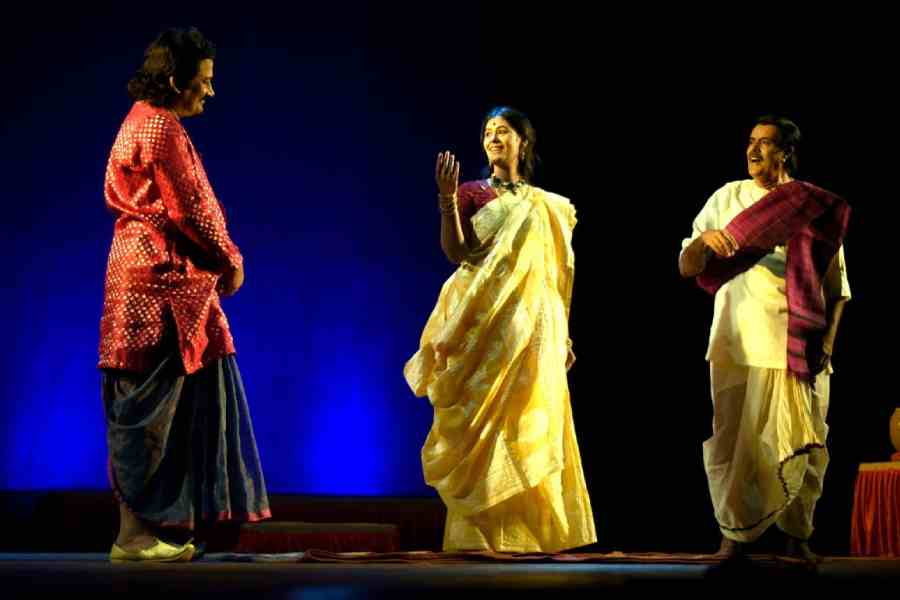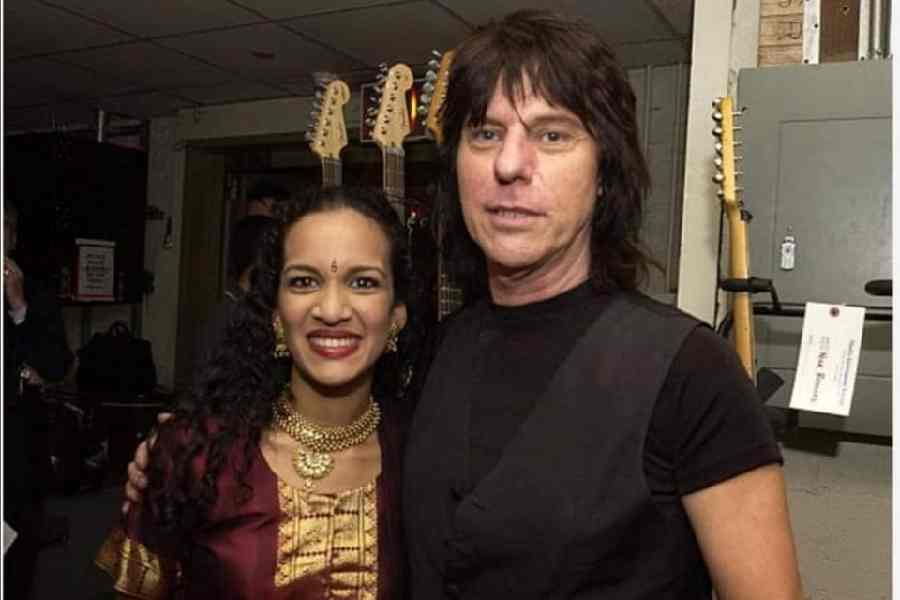Purba Paschim continues to keep faith in the long-standing partnership of the writer-director duo, Ujjwal Chattopadhyay and Soumitra Mitra, respectively, and the result is its latest offering, Shree O Nidhubabu Katha. Chattopadhyay makes a self-assured foray into performative cultural historiography with this bio-drama based on the life of Ramnidhi Gupta (Nidhubabu), the 18th-century Bengali songwriter and composer chiefly remembered for his tappas. Perceptively responding to the demands of the text, Mitra consciously incorporates into his directorial design simple yet effective elements that memorialise Bengali theatrical practices from bygone eras — two such elements being the invocatory epilogue and the colourful canopy, which remains a fixed set element throughout the length of the play. It is a pity that Mitra could not get his light designer, Soumen Chakraborty, to come up with a light scheme that would suitably signal the texture and the look of a performance event from the past.
A play with Nidhubabu as the protagonist will expectedly contain songs, but what exceeds all expectations in Shree O Nidhubabu Katha is the quality of the singing: it is Rajat Ganguly as Nidhubabu who delivers an unforgettable performance studded with superlative singing. A study in unflappable composure and austerely contained acting, Ganguly injects into his character a believability that is thoroughly riveting. Watching Ganguly simultaneously negotiate the demand to characterise Nidhubabu and the formidable challenge to sing intricately composed tappas with seemingly effortless ease is a treat for the audience. Anandarupa Chakraborty as Shree overcomes a nervy start to gradually settle into her role, and once she gets into her groove, she shines brightly opposite Ganguly which is no mean task. In her best moments, she is able to blend her histrionic abilities with her singing prowess so that her performance becomes organically unified.
At one point, Chakraborty’s character asks whether women have the right to live in the ways they think fit, and the question finds immediate resonance with a Calcutta seething with protests against the R.G. Kar horror.











